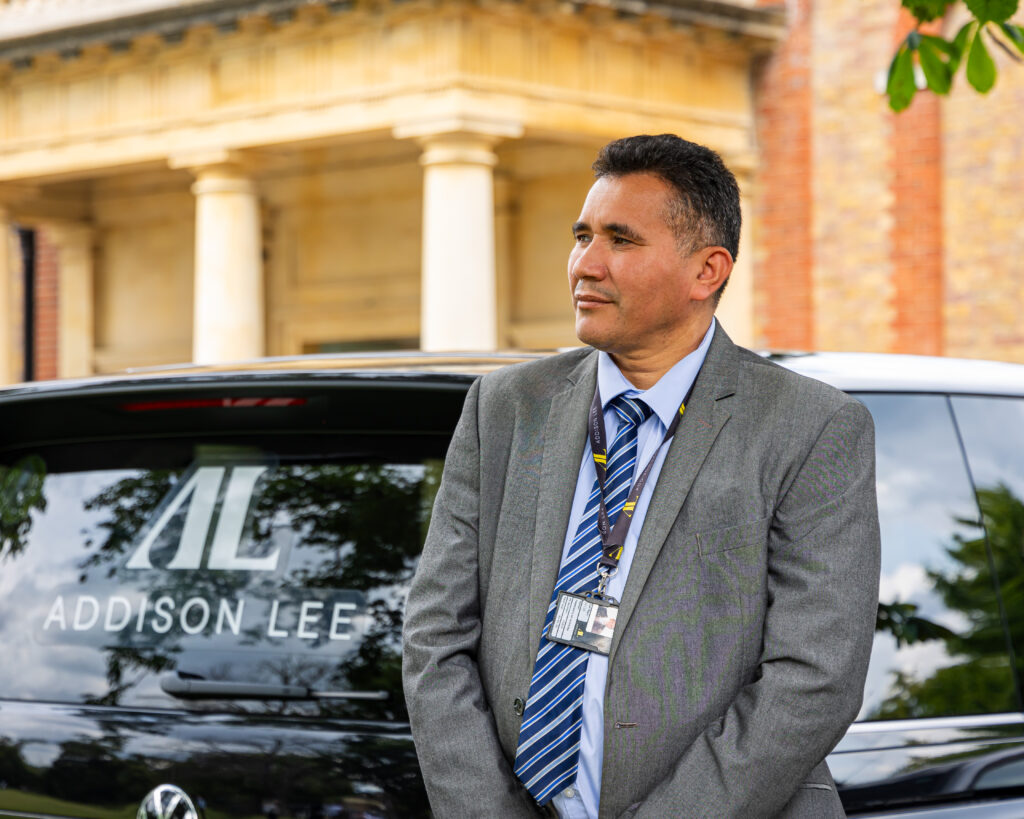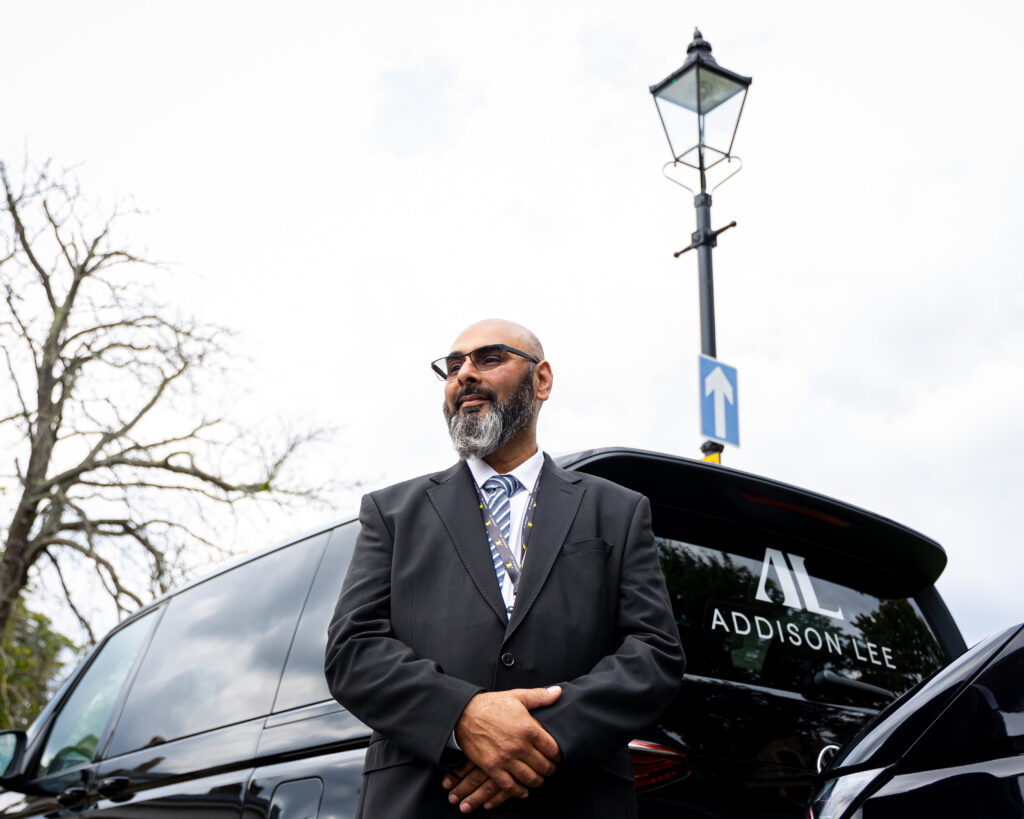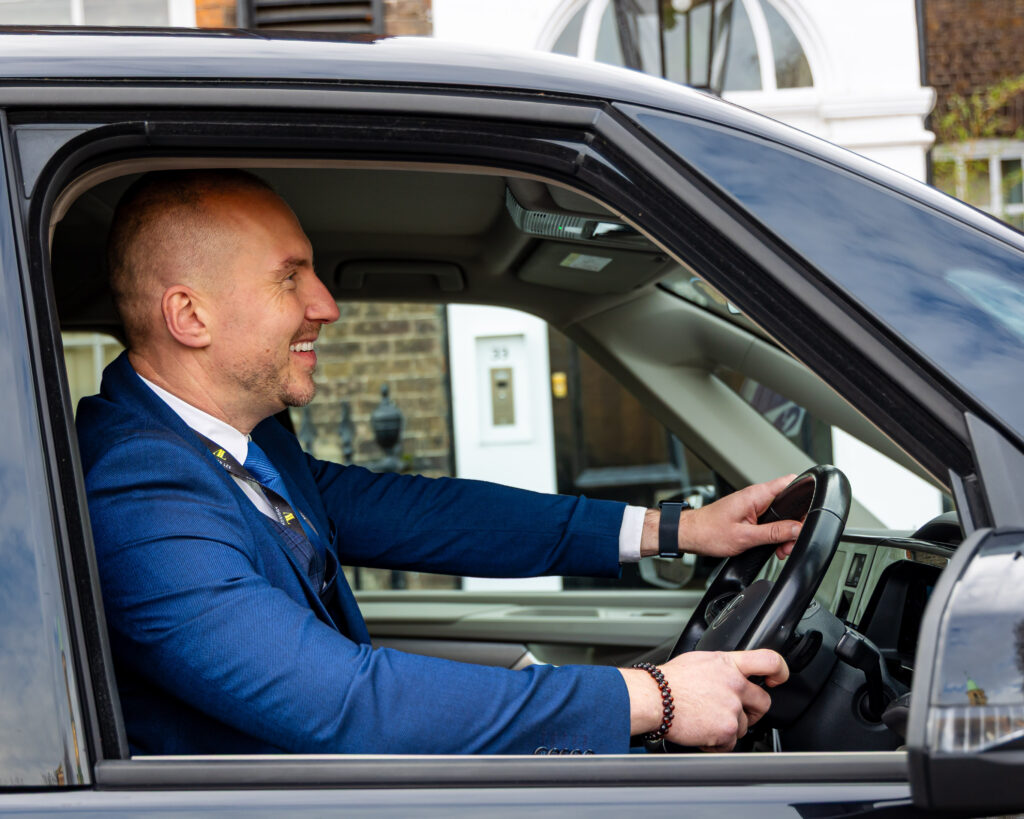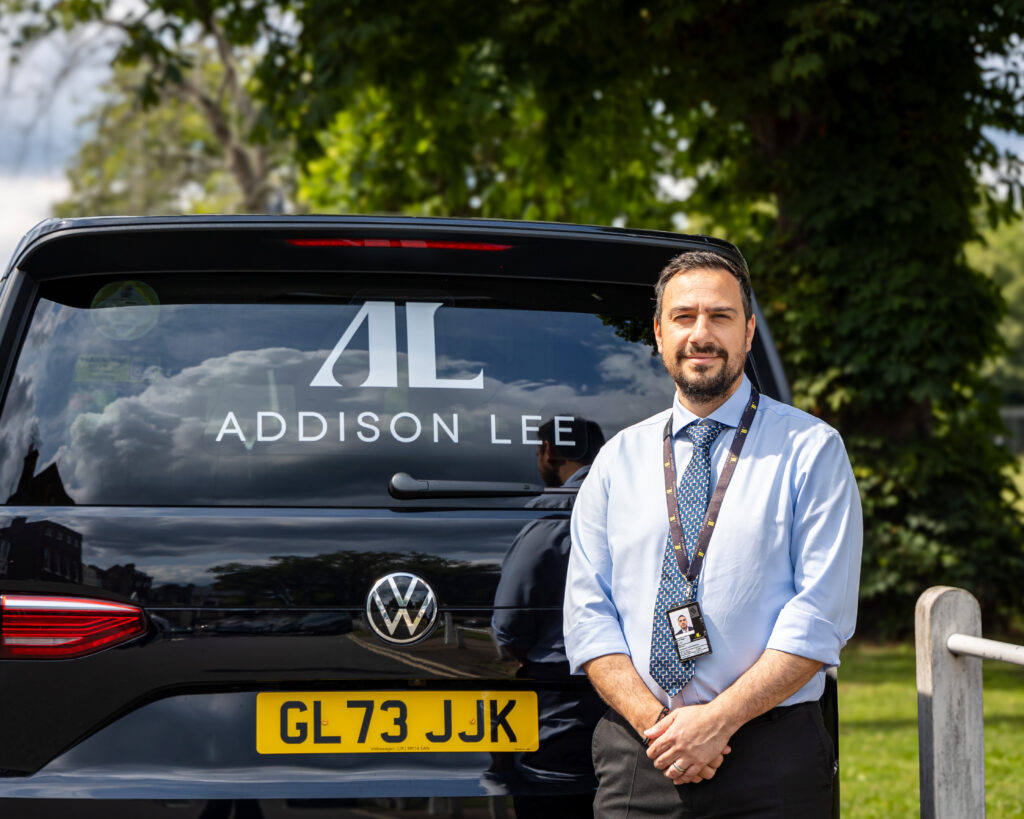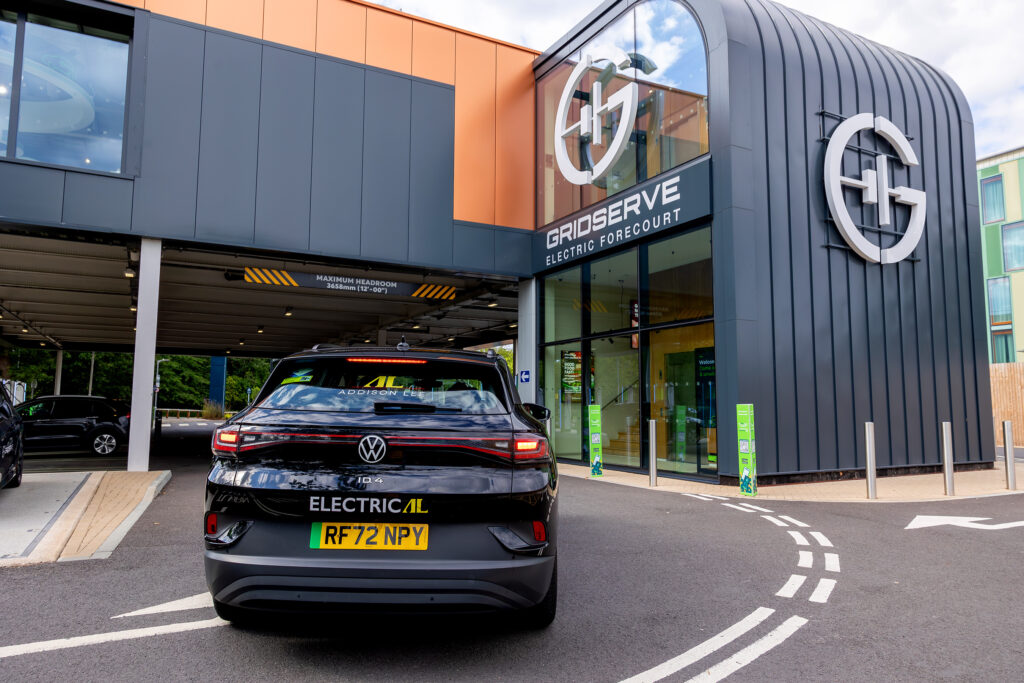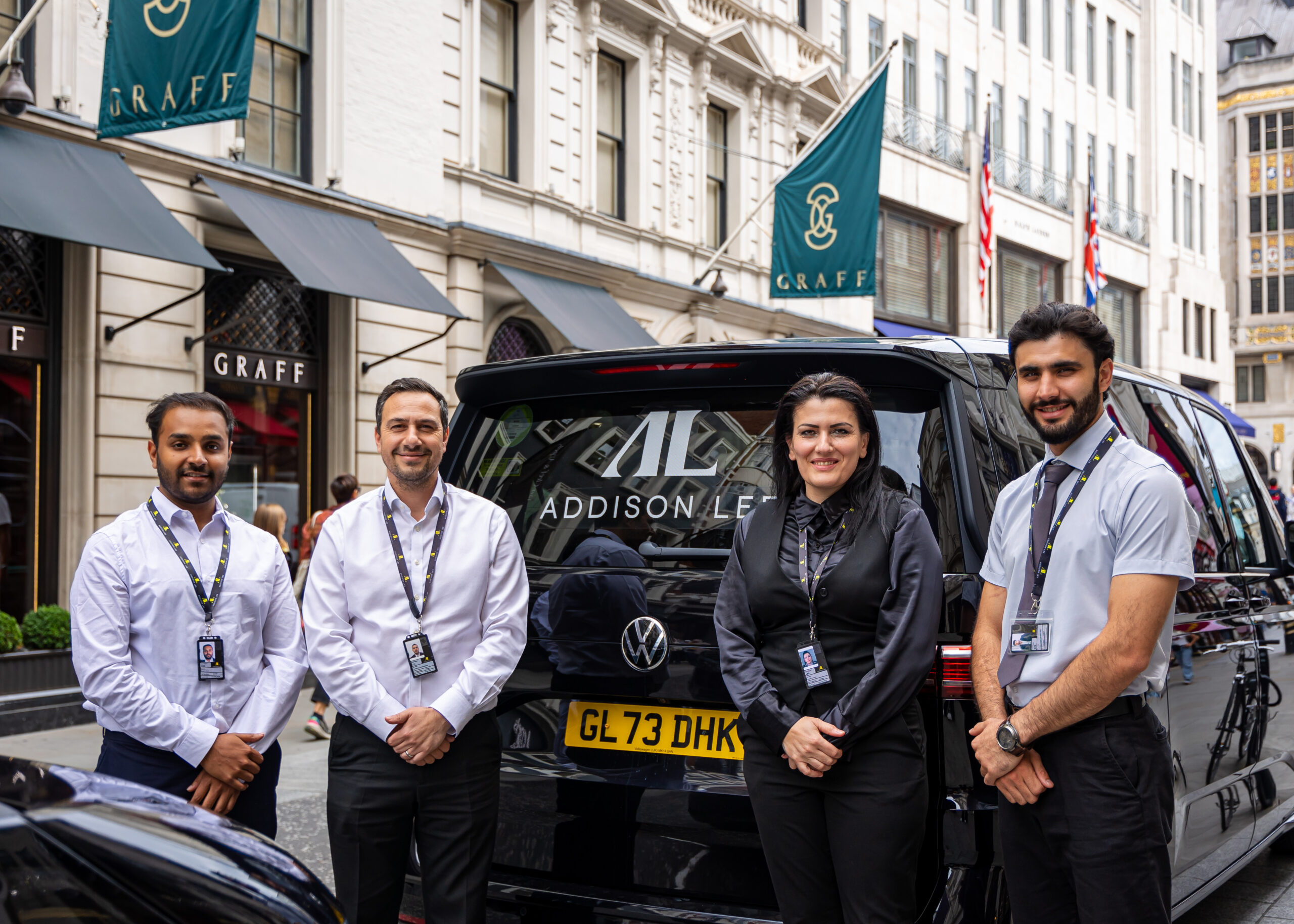
How to Become a Taxi or Private Hire Driver in the UK
If you’re thinking about becoming a private hire driver in London or elsewhere in the UK, we’re here to help. Whether you’re looking for a new career, flexible work alongside your studies or family life, or a way to meet people all while earning a stable income, becoming a private hire driver offers plenty of benefits.
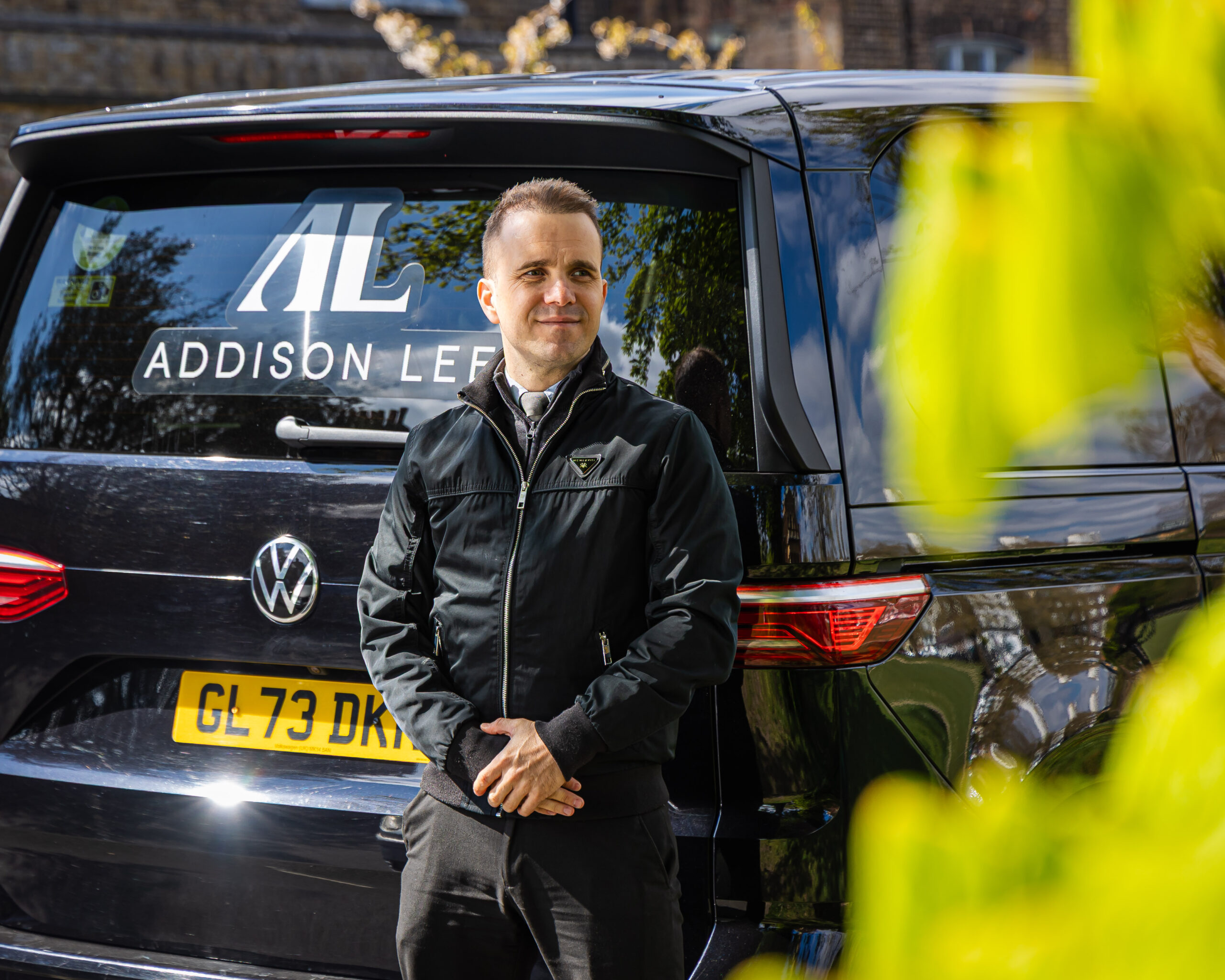
What is a Private Hire Driver?
A private hire driver drives a vehicle that carries up to eight passengers and must be pre-booked through a licensed operator.
Unlike black cab taxi drivers, private hire drivers cannot legally pick up passengers who hail them on the street or operate from taxi ranks. Instead, they get their bookings through platforms like Addison Lee, ride-hailing apps or other private hire companies.
Private hire vehicles include minicabs, executive cars and chauffeur-driven vehicles. All private hire drivers in London must hold a PCO licence issued by Transport for London (TfL).
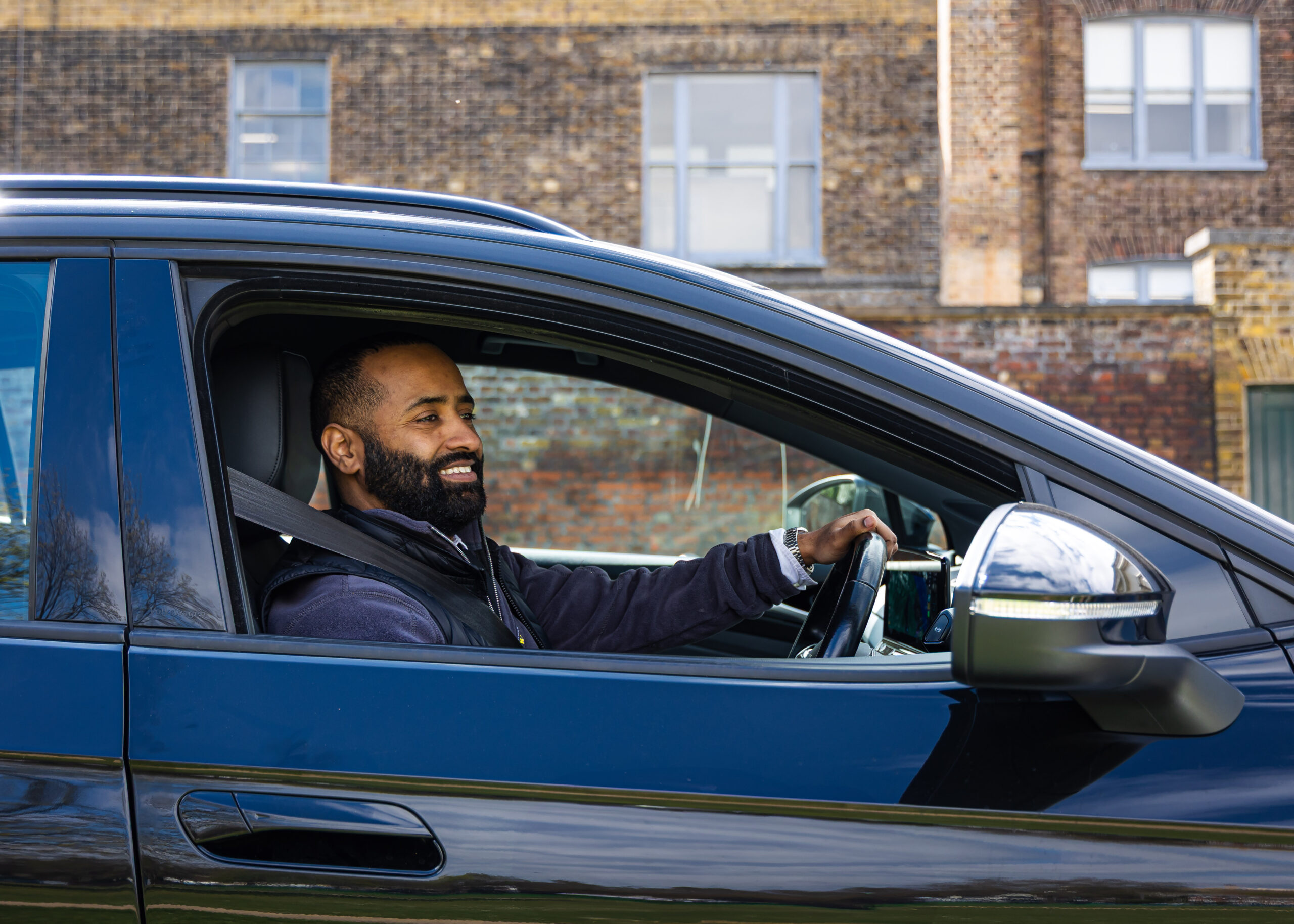
Why Become a Private Hire Driver?
Flexibility
One of the main reasons people choose to become a private hire driver is the flexibility it offers. You get to decide your working hours and fit your shifts around family, other jobs or study. Many of our drivers enjoy the independence of being their own boss while benefiting from the structure and support of a licensed operator.
Earning Potential
Private hire drivers can earn a competitive income. This depends on hours worked, peak times and the operator they work for. Drivers who work efficiently and build strong customer ratings tend to be the ones who maximise their weekly pay.
Meeting New People
If you enjoy chatting with passengers, learning about their stories and networking across different industries, becoming a private hire driver puts you in touch with a wide range of people every day.

Requirements to Become a Private Hire Driver in the UK
To become a private hire driver, you will need to meet the following general requirements (note: requirements vary slightly outside London):
- Age: You must be at least 21 years old.
- Driving Licence: Hold a full UK, Northern Ireland or EU/EEA driving licence for at least 3 years.
- Right to Work: You must have the legal right to live and work in the UK.
- Medical Fitness: Pass a Group 2 medical examination to confirm your fitness to drive professionally.
- Character: Pass an Enhanced DBS criminal record check to ensure passenger safety.
- Topographical Skills: Demonstrate your ability to read maps and plan routes efficiently.
- English Language: Pass a speaking and listening test to prove you can communicate with passengers safely and clearly.
- SERU Assessment: Pass the Safety, Equality and Regulatory Understanding (SERU) test to show knowledge of rules, safeguarding and equality.
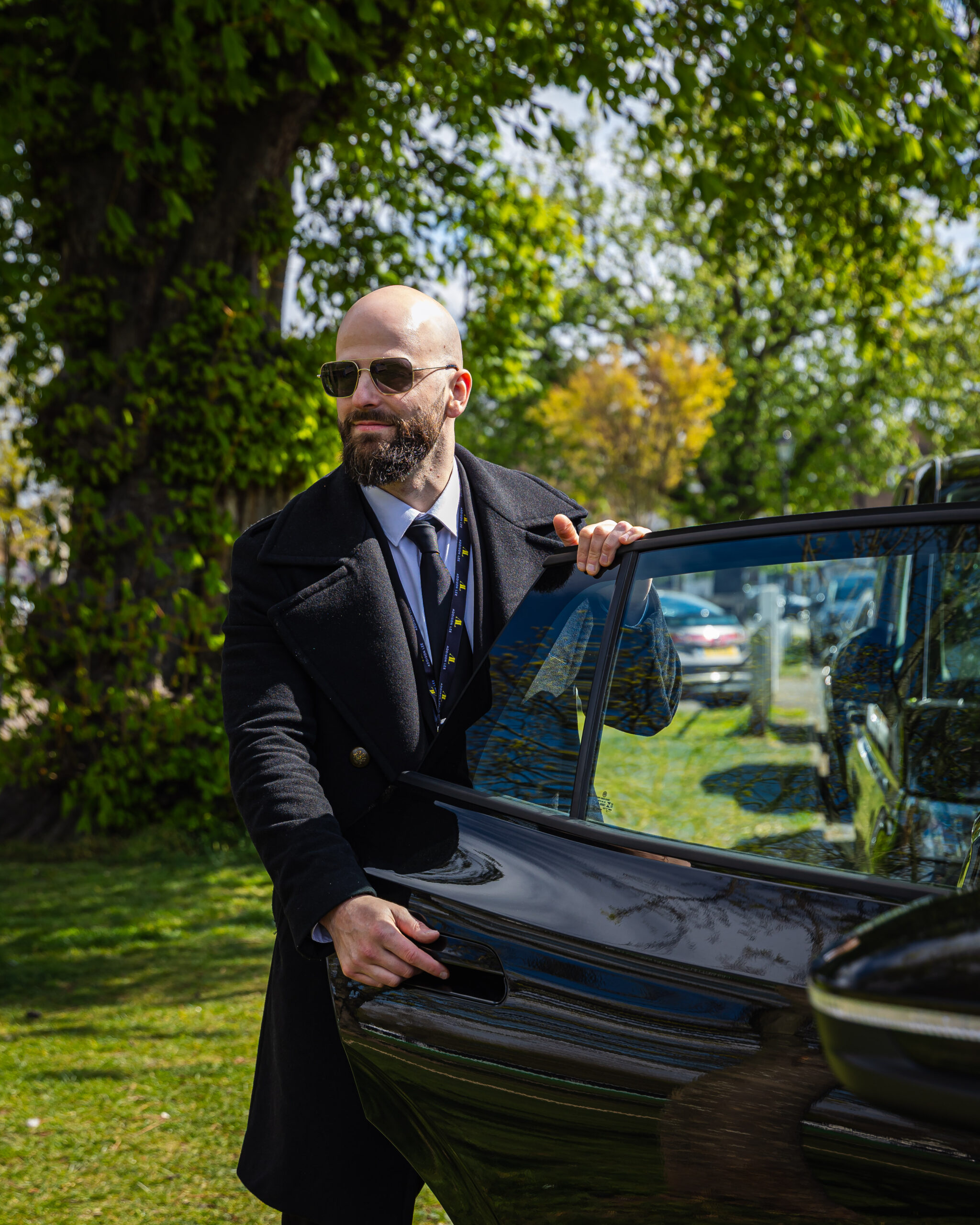
The Private Hire Driver Application Process (London)
Here’s a step-by-step guide of the application process to become a private hire driver in London:
Step 1: Apply Online with TfL
Start your application by creating an account on TfL’s online portal. Complete the form carefully, ensuring all information matches your ID and driving licence documents to avoid delays.
Step 2: Book Your Medical Examination
Arrange a Group 2 medical check with your GP or an approved medical provider. This check will assess your eyesight, heart health and general fitness for driving professionally. We’ll cover this in more detail later on.
Step 3: Complete an Enhanced DBS Check
An Enhanced Disclosure and Barring Service (DBS) check will confirm you are of good character to carry passengers. You can apply through TfL’s recommended provider to speed up processing.
Step 4: Pass Your Topographical Skills Test
Book your topographical test at a TfL assessment centre. This test assesses your ability to read maps, plan routes and navigate efficiently in London. Addison Lee can help you with this.
Step 5: Pass Your English Language and SERU Assessments
Your English language assessment ensures you can communicate effectively. The SERU test checks your knowledge of safety, equality and regulatory responsibilities as a private hire driver.
Step 6: Submit Supporting Documents
Upload your passport, driving licence, National Insurance number and two proofs of address. Make sure your documents are current and match your application details.
Step 7: Wait for Approval
Once all checks are completed, TfL will review your application. Approval times vary, but most licences are issued within 8-16 weeks.
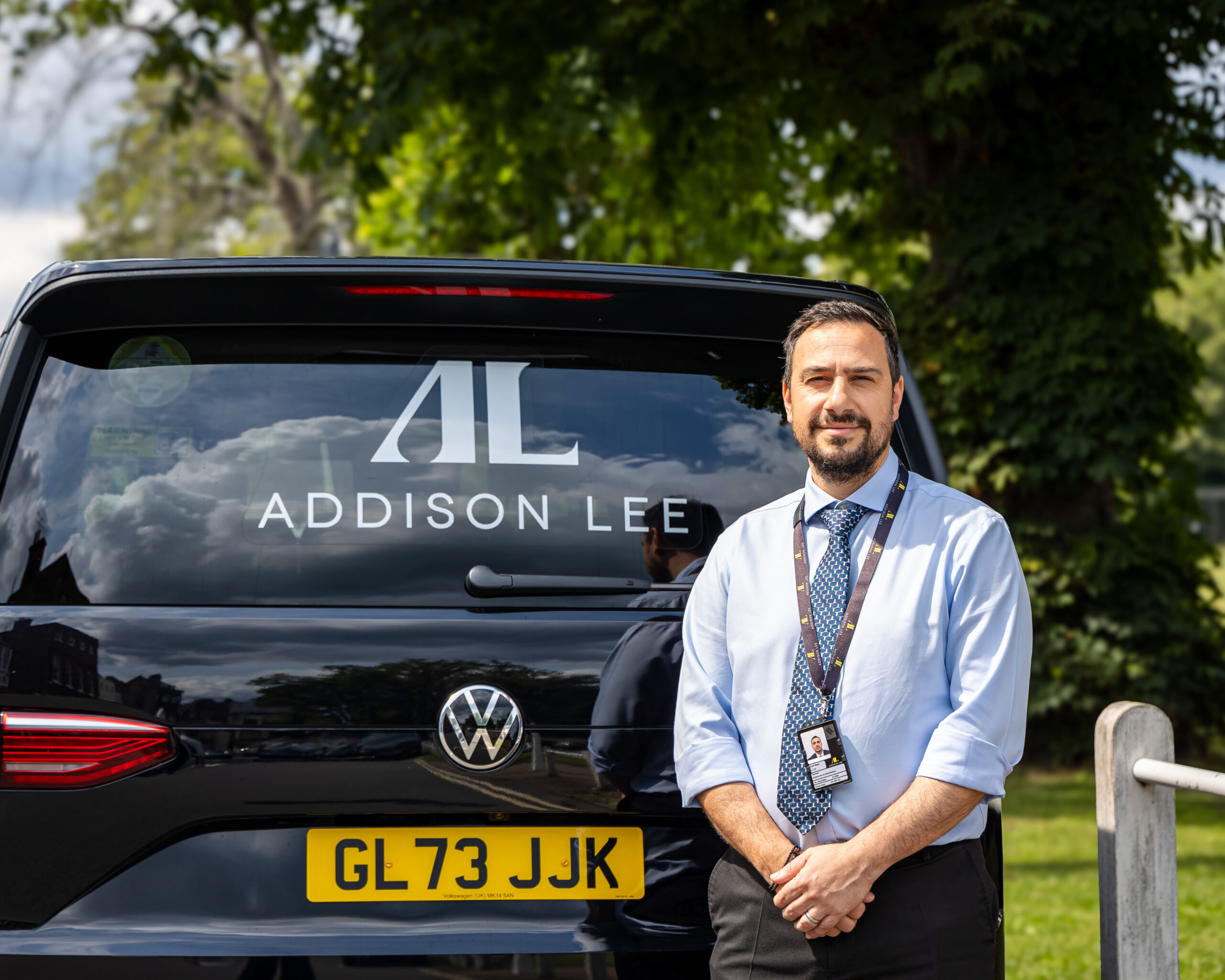
How Much Does it Cost to Become a Private Hire Driver?
Here is an estimated cost breakdown for your private hire application in London:
| Item | Estimated Cost |
| DBS disclosure application | £52 (online)
£54 (paper) |
| Licence application fee | £124 |
| Grant of licence fee | £186 |
| Post Office Check and Send | £7.15 |
| Speaking and listening assessment | £36 |
| Topographical assessment | £36 |
| SERU assessment | £36 |
| Medical assessment | Fee set by the examining doctor |
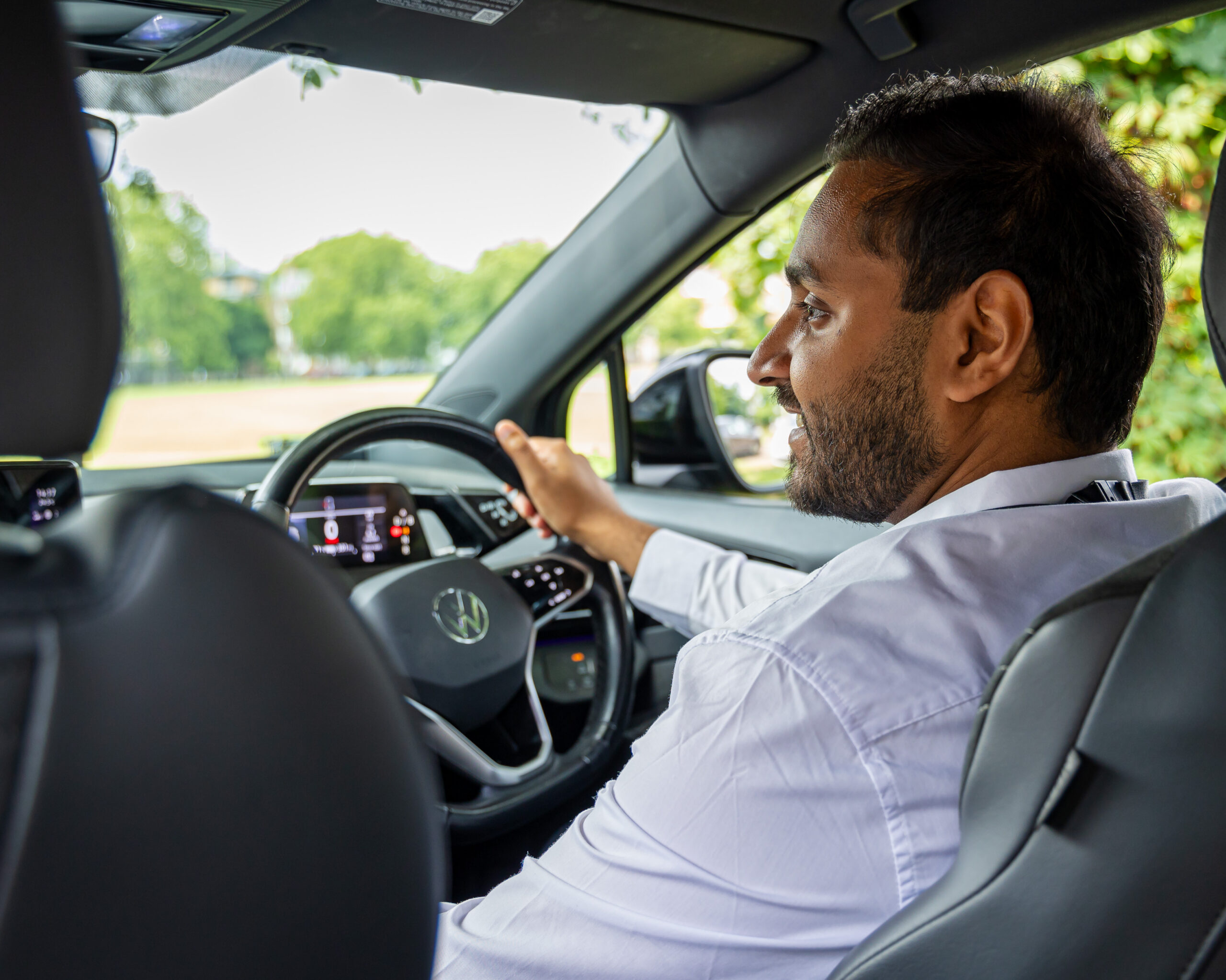
What Makes a Good Private Hire Driver?
Beyond passing your assessments, excelling as a private hire driver requires:
- Professionalism: Always greeting passengers politely and maintaining a friendly and helpful attitude.
- Local Knowledge: Knowing local streets, landmarks and peak traffic times.
- Safety: Driving smoothly, respecting road laws and making passenger comfort your priority.
- Cleanliness: Keeping your vehicle clean and tidy at all times.
- Reliability: Arriving on time for pick-ups and managing your schedule efficiently.
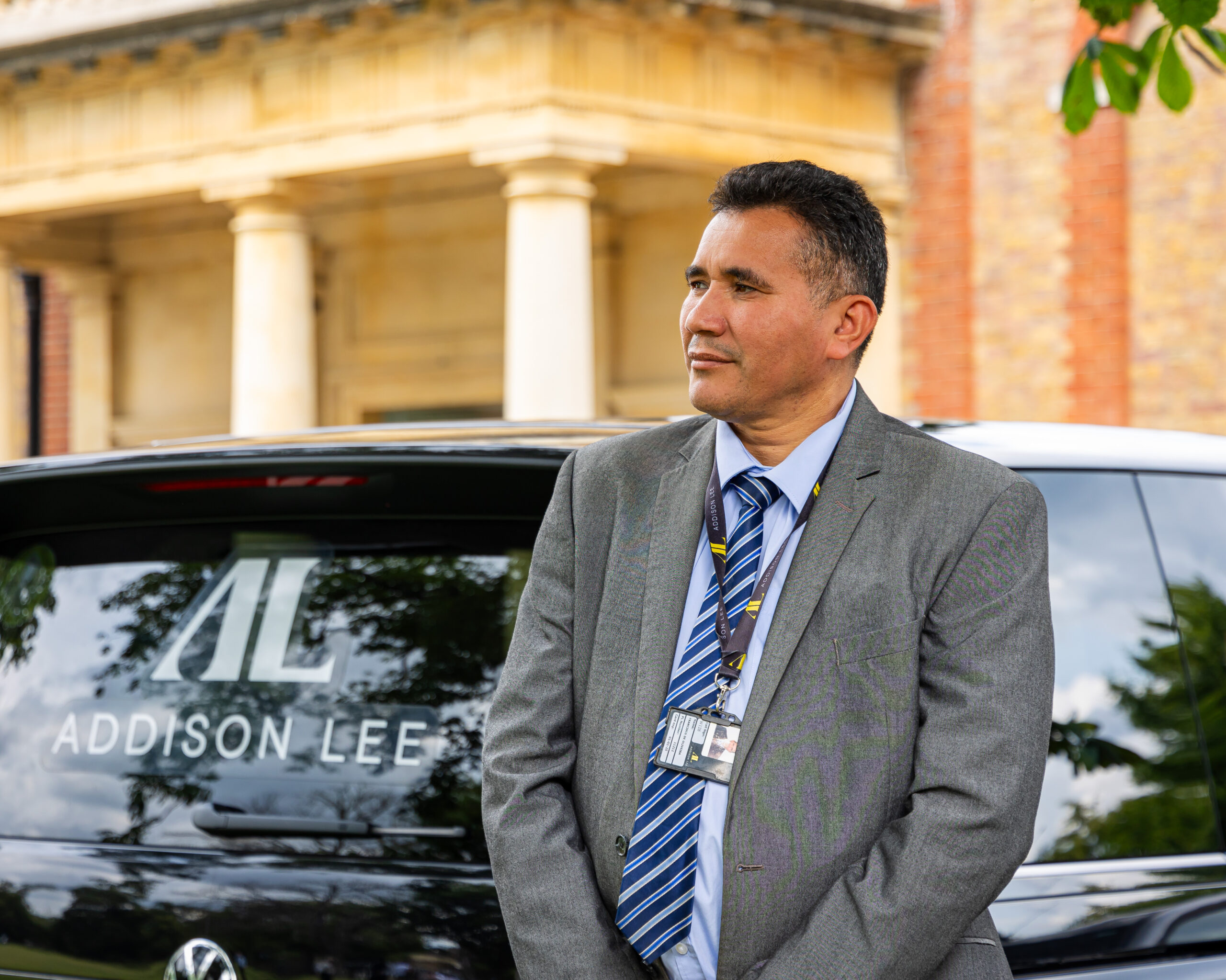
Private Hire vs Taxi Driver: What’s the Difference?
| Private Hire Driver | Taxi Driver (Black Cab) |
| Must be pre-booked | Can be hailed or pre-booked |
| Requires PCO licence | Requires taxi driver licence and The Knowledge |
| Application takes around 8-16 weeks | The Knowledge takes around 3-4 years |
| Vehicles provided by operator (e.g. Addison Lee) | Must lease or own a black cab |
If you want to start earning sooner, becoming a private hire driver is generally faster and more flexible.
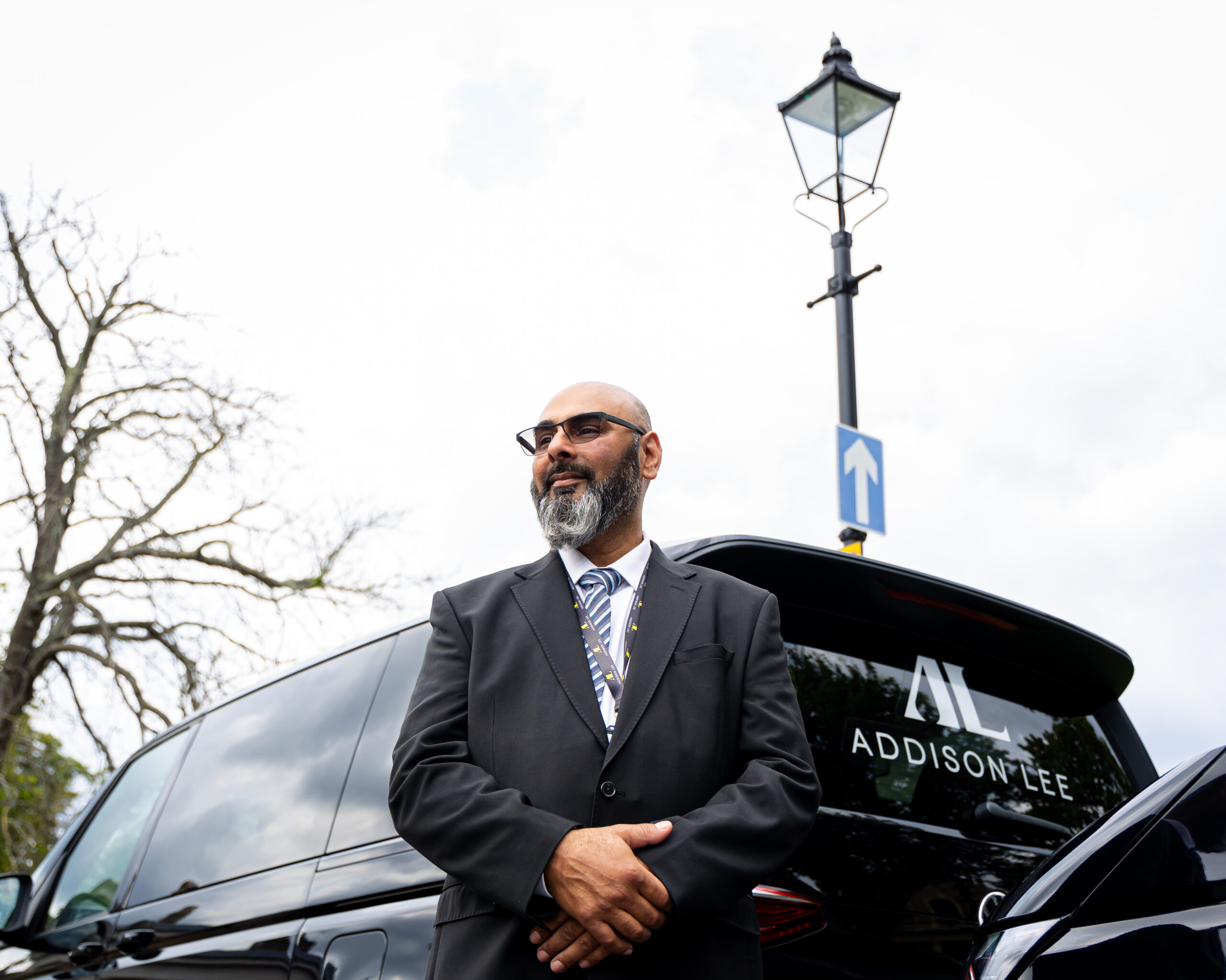
Career Progression as a Private Hire Driver
Once licensed, there are various ways to grow your career:
- Executive Chauffeur Services: Drive higher-value executive clients with premium vehicles.
- Airport Transfers Specialist: Focus on profitable airport transfer runs for corporate passengers.
- Become a Trainer: Experienced drivers can train new recruits on customer service and navigation.
- Owner Operator: Lease or purchase your own vehicle to maximise take-home pay.

Life as a Private Hire Driver: Real Stories
Anton’s Story
“I chose to become a private hire driver because of the flexibility it gives me. Addison Lee’s support has been 110%.”
Xhejsi’s Story
“To me as a female, flexibility is the main thing. At Addison Lee, you can work any time you like, any hours you like… and you get a bonus on top of your wages, which is excellent”
Josh’s Story
“You get a pension so it’s nice to be self-employed but still know that your pension is taken care of.”
TIPS FOR NEW PRIVATE HIRE DRIVERS
- Plan Your Routes: Think ahead to avoid traffic and get to your destination faster.
- Stay Up To Date: Check TfL updates for regulation changes.
- Look After Yourself: Take plenty of breaks and stay hydrated on long days.
- Network: Build relationships with your operator’s support team.
- Use the Latest Tech: Learn your operator’s booking app, payment systems and traffic tools for smooth day-to-day work.

HMRC Tax Check for Private Hire Drivers
Since 4th April 2022, HMRC introduced a mandatory tax check for all taxi and private hire drivers. If you want to become a private hire driver or renew your existing licence, you must complete this tax check to prove you’re registered to pay tax on your income.
What is the HMRC Tax Check?
The tax check confirms to Transport for London (TfL) or your local licensing authority that you are registered with HMRC to pay tax on your earnings. This helps the government ensure all licensed drivers operate within UK tax regulations.
How to Complete the Tax Check
- Log into your Government Gateway account using your ID and password.
- Follow the steps on the HMRC tax check portal to confirm your registration.
- Get your unique 9-character tax check code once complete.
When to Provide Your Tax Check Code
- You must include your tax check code when renewing your private hire licence or if applying for a new licence and you’ve held a licence in the last two years.
- Provide this code to TfL as part of your application form.
Important Notes
- Make sure the tax check code matches the type of licence you’re applying for (e.g. taxi driver or private hire driver).
- A tax check code is valid for only 120 days from the date of issue. If your code expires before your application is processed, TfL cannot complete your application, and it will be deemed incomplete until a valid code is provided.
- Always record your tax check code clearly on your application to avoid unnecessary delays.
Where to Find Guidance
HMRC offers step-by-step guidance on completing your tax check on the GOV.UK website.
Why does this matter?
Completing your HMRC tax check on time keeps your application process smooth and ensures you remain compliant with your tax obligations as a licensed private hire driver.
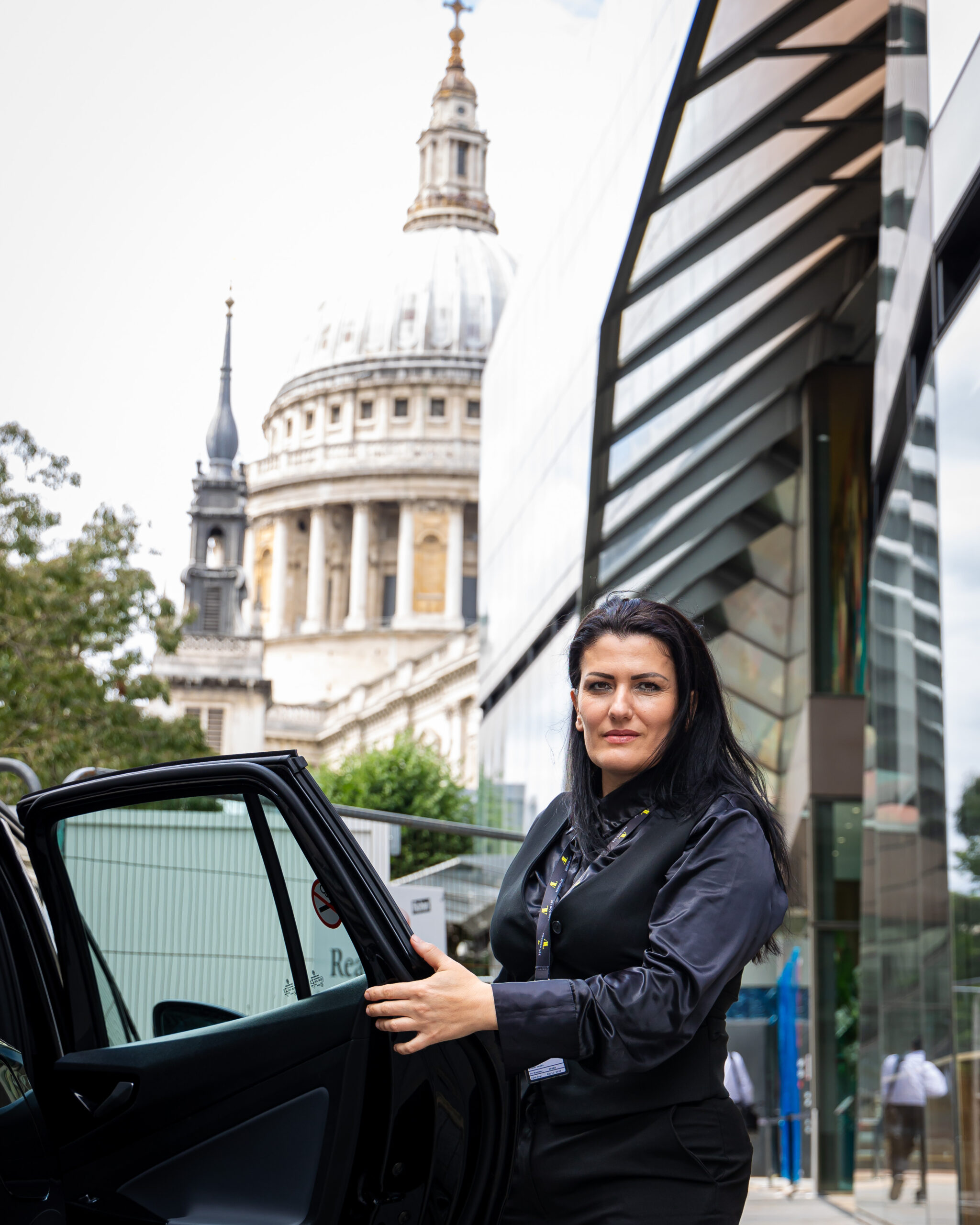
Equal Opportunities for All Aspiring Drivers
Becoming a licensed taxi or private hire driver is open to everyone, regardless of background, gender or disability status. The industry welcomes applicants from all walks of life.
Driving with a Disability
If you are a disabled person considering becoming a private hire driver, there are important factors to keep in mind. While most people can apply, certain medical conditions may restrict your eligibility for public safety reasons. So, it’s essential to discuss your medical history with your GP before starting the application process.
Medical Guidelines
TfL follows the DVLA Group 2 medical guidelines. This ensures all drivers are fit to drive passengers safely. Conditions affecting vision, heart health or mobility may require further medical assessment before approval.
Vehicle Adaptations for Disabled Drivers
Many vehicles can be adapted to support disabled drivers. Common adaptations include:
- Steering wheel ball
- Hand-operated brake and accelerator controls
- Reconfigured foot pedal controls
- Infra-red control panels for indicators, lights and horns
If you need adaptations, you will need an assessment by a medical professional and driver assessor. They will recommend the equipment you need to operate your vehicle safely at all times. All adaptations must be fitted by an authorised Motability installer, and documentary proof of installation will be required by TfL.
Always contact your licensing team before installing any vehicle adaptation to confirm requirements.
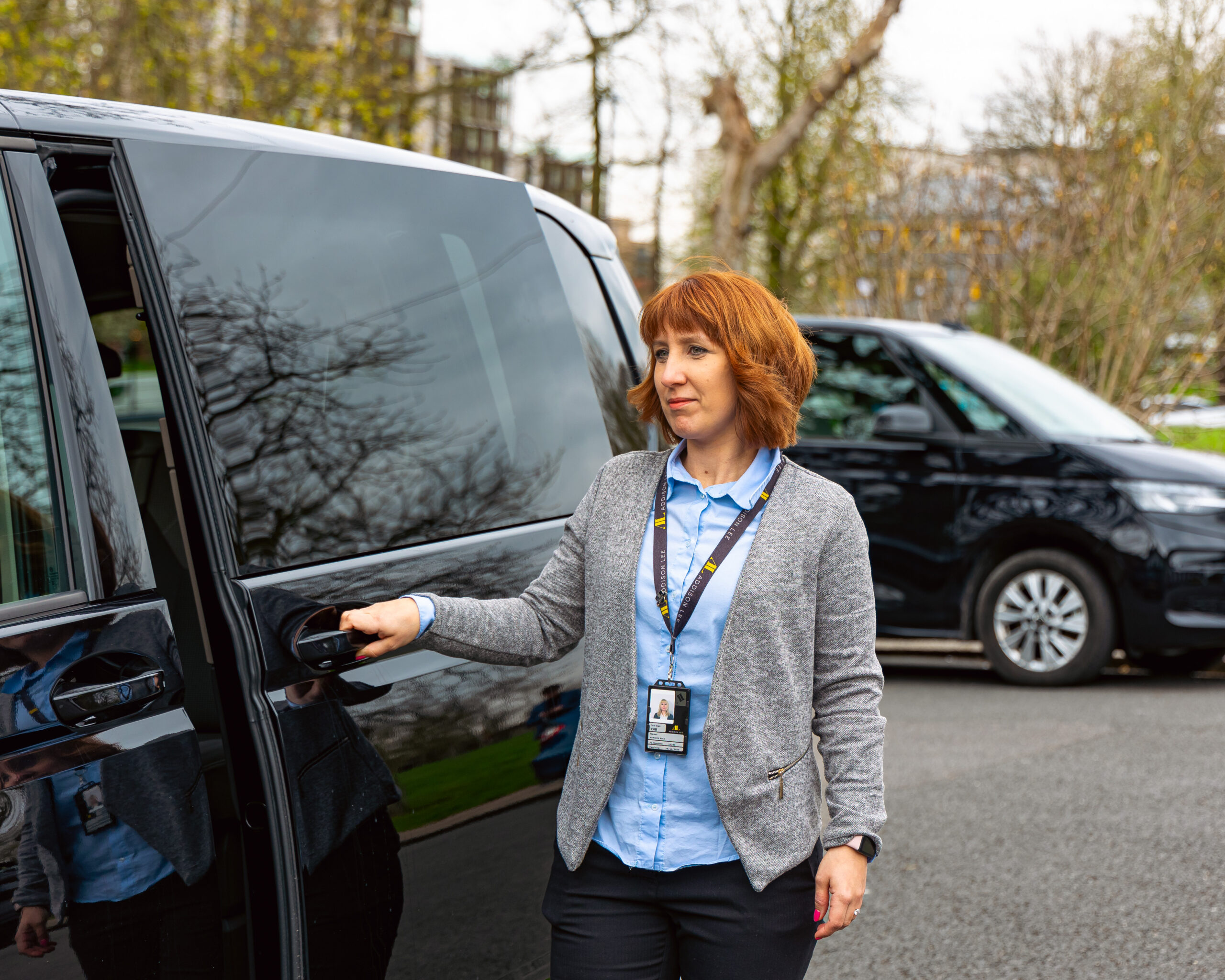
Understanding Exemptions and Driver Assessments
Badge Exemptions
Private hire drivers must wear their PHV driver badge while on duty. However, exemptions apply if wearing a badge poses some kind of risk or if a passenger requests the driver not to wear it.
Guide and Assistance Dogs
Drivers must carry guide dogs and assistance dogs accompanying disabled passengers at no extra charge. You can apply for an exemption from this only on medical grounds with supporting evidence.
Wheelchair Assistance
If your vehicle is designated as wheelchair accessible, you are legally required to provide physical assistance to wheelchair users without any additional fee. Exemptions are granted only on medical grounds or if a physical condition makes compliance unreasonably difficult.

Language, Topographical, and Safeguarding Assessments
English Language and SERU Requirements
You need to prove you can read, write, listen and speak English at B1 level on the Common European Framework of Reference. To do this you need to pass:
- SERU Assessment: Tests reading, writing, safety, equality and regulatory understanding.
- Speaking and Listening Assessment: Done via video or phone at TfL premises.
Topographical Skills Test
All private hire driver applicants must pass a topographical skills test unless exempt, such as:
- Previously licensed PHV drivers who passed a TfL topographical test
- Licensed London taxi drivers
- Qualified professional tourist guides (e.g. Blue Badge Driver Guides)
Safeguarding Awareness Training
Before taking the SERU assessment, applicants must complete TfL’s online safeguarding training. This covers protecting children and vulnerable adults from harm and abuse, a vital responsibility for all drivers.

Convictions, Medical Exemptions, and Final Considerations
Criminal Convictions
If you have convictions for major offences, or are listed on barred lists, your application is unlikely to be successful.
Medical Exemptions
If you hold a full or provisional DVLA Group 2 licence you may be exempt from a separate medical form. However, medicals are required if:
- You’re over 45 and it’s been over three years since your last medical
- You’re subject to an age-related medical check
The Future of Private Hire Driving in the UK
The private hire industry is changing. Over the next decade, drivers will see differences in how they work and the vehicles they drive.
One of the biggest changes is the move towards zero-emission and hybrid vehicles. With government targets for phasing out petrol and diesel-only cars, operators are increasingly investing in greener fleets to meet environmental goals and reduce running costs for drivers.
Tech will also play a bigger role. Smarter booking algorithms will match drivers to passengers more efficiently, reducing dead mileage and helping maximise earnings. Real-time traffic data, AI-powered navigation and automated surge pricing will mean drivers can make better informed decisions about when and where to work.
Passenger expectations are also rising, with more focus on safety, comfort and accessibility. This means drivers who invest in keeping high service standards and excellent communication will stand out in a competitive market.
The private hire sector is likely to expand its role in last-mile deliveries, corporate contracts and event transport, giving drivers more varied earning opportunities. By staying adaptable and informed, today’s private hire drivers can thrive well into the future.
FAQs
- How long does it take to become a private hire driver?
On average, 8-16 weeks in London if you complete all requirements promptly.
- How much can I earn?
Earnings vary depending on the number of hours worked and the shifts you choose. On average full-time drivers typically earn between £800-£1,200 per week, with part-time drivers typically earning between £400-£600 per week. However, many drivers exceed these averages. Addison Lee’s top earners regularly earn in the region of £2,000 a week
- What happens if I fail an assessment?
You can rebook and retake the test, but preparing thoroughly prevents this risk.
- What’s the difference between zero-emission capable and fully electric vehicles?
Zero-emission capable vehicles can operate in electric-only mode for a certain distance, but also have a traditional fuel engine for longer journeys. This means drivers can enjoy the benefits of reduced emissions and lower running costs in urban areas while avoiding range worries for longer trips. Fully electric vehicles rely solely on battery power, which requires planning around charging points and charging time. Many operators, including Addison Lee, are introducing zero-emission capable hybrids as a practical balance between environmental goals and driver convenience.
- Do I need special insurance to be a private hire driver?
Yes. Private hire drivers must hold hire-and-reward insurance, which covers you for carrying passengers for payment. This is different from standard car insurance and is a legal requirement. Your insurance must be valid for the type of vehicle you drive and the area you’re licensed in.
Some operators, like Addison Lee, include insurance in their vehicle hire packages, saving you the time and cost of arranging it yourself. Always ensure your policy is up to date, as driving without the correct insurance can result in fines, points on your licence, and the loss of your PCO licence.
- How can I make my private hire application faster?
Preparation is key. Gather all the required documents before you apply, including proof of address, valid ID, your driving licence and medical certificate. Book your DBS check, medical, topographical test, and English/SERU assessments as early as possible. Ensure your details are consistent across all documents, as mismatched information can cause delays. Finally, keep an eye on your TfL account or local licensing portal for updates and respond promptly to any requests for additional information.
- Can I work for more than one operator at the same time?
In most cases, yes… provided you meet the licensing requirements for each and your insurance policy covers multiple operators. This is called multi-apping and is common among drivers who want to increase their earnings by accessing more job opportunities. However, it’s important to manage your bookings carefully to avoid double-booking or being late for pickups, as this can affect your ratings and future work offers.
- Do I have to own the vehicle I drive?
No. Many private hire drivers lease or rent vehicles from licensed operators or approved suppliers. This often includes insurance, maintenance and servicing, which reduces upfront costs and hassle. If you do choose to buy your own car, it must meet the licensing authority’s vehicle requirements, including age, condition, and emissions standards, and pass regular inspections.
- Is private hire driving a good option for part-time work?
Yes. One of the biggest benefits of becoming a private hire driver is the flexibility to work part-time. Many drivers choose to work evenings, weekends or a few hours each day around other jobs or commitments. This flexibility means you can earn extra income without giving up your current career or studies.
Become a Private Hire Driver with Addison Lee
At Addison Lee, we support you every step of the way:
- Help with your PCO licence application
- New hybrid vehicles
- Four weeks free vehicle hire
- Flexible hours, pension, sick pay and holiday pay
Ready to start your journey?
Apply to Become a Driver Today






